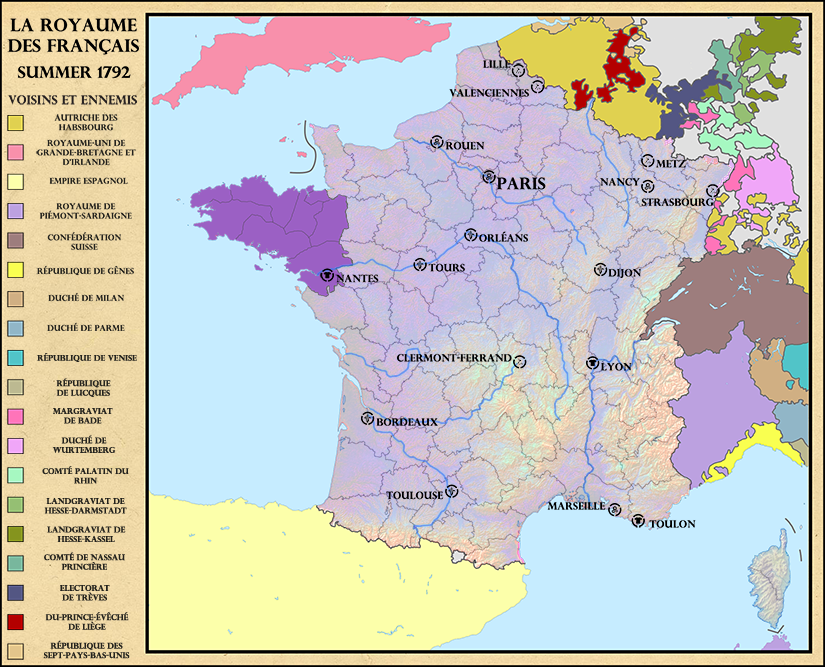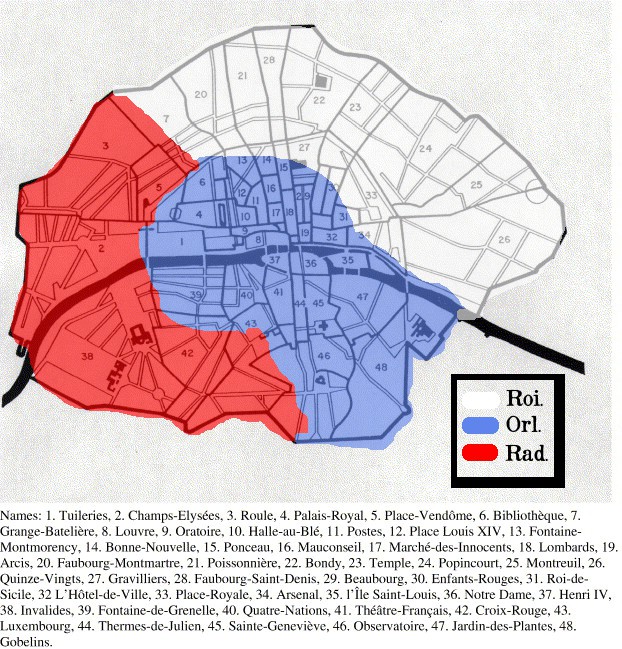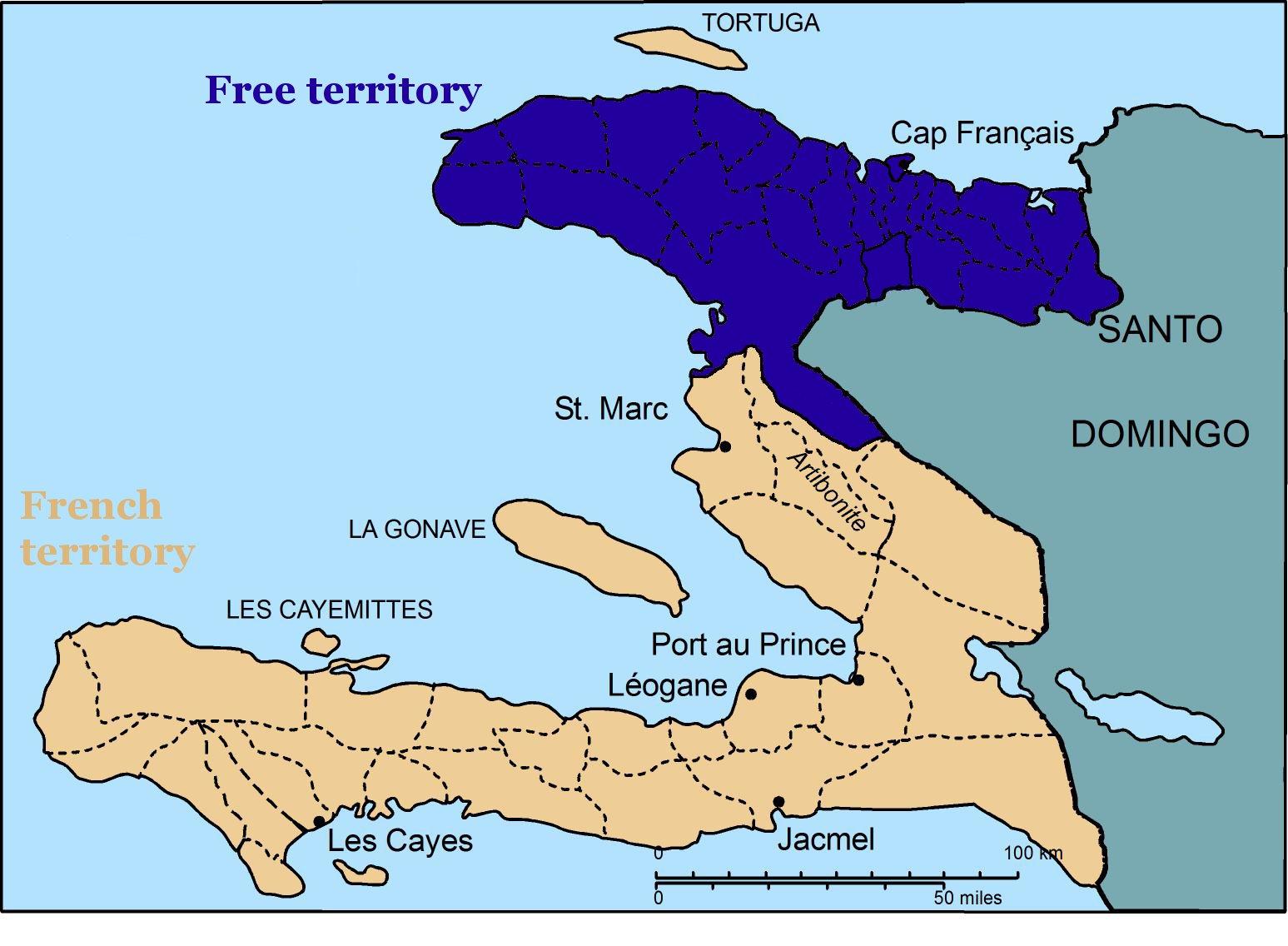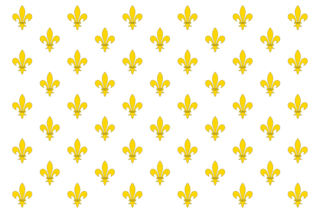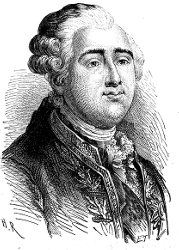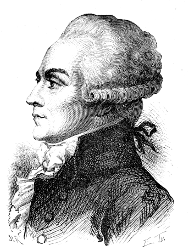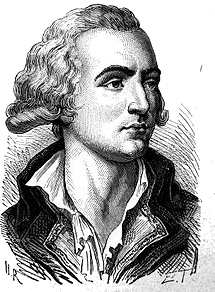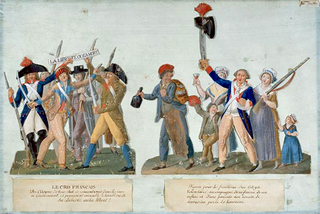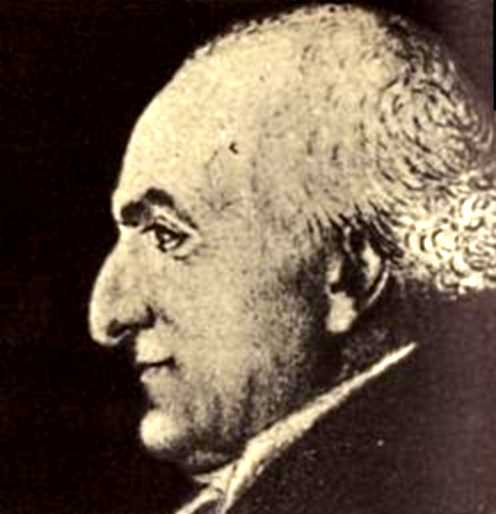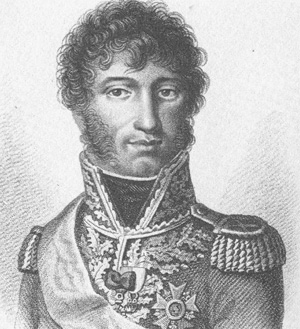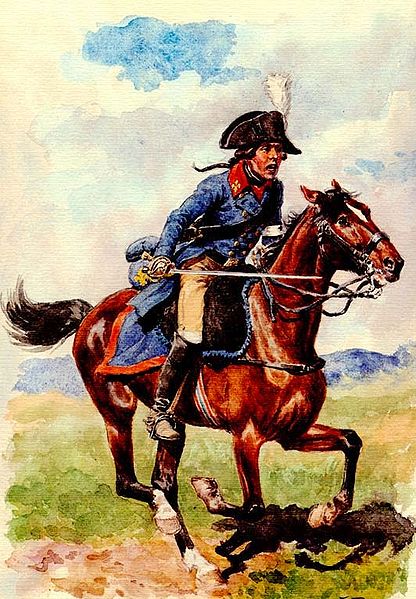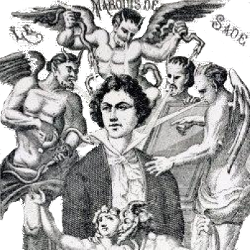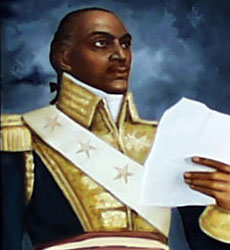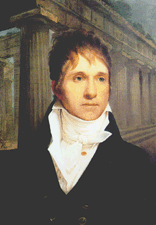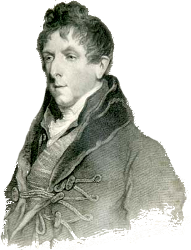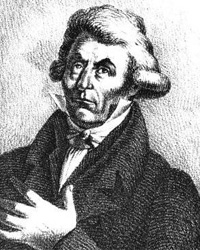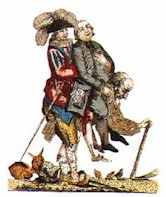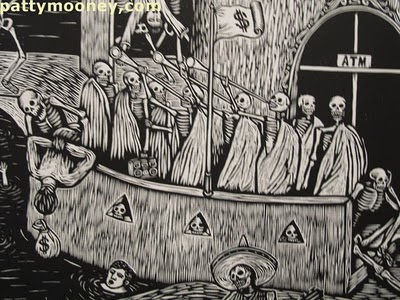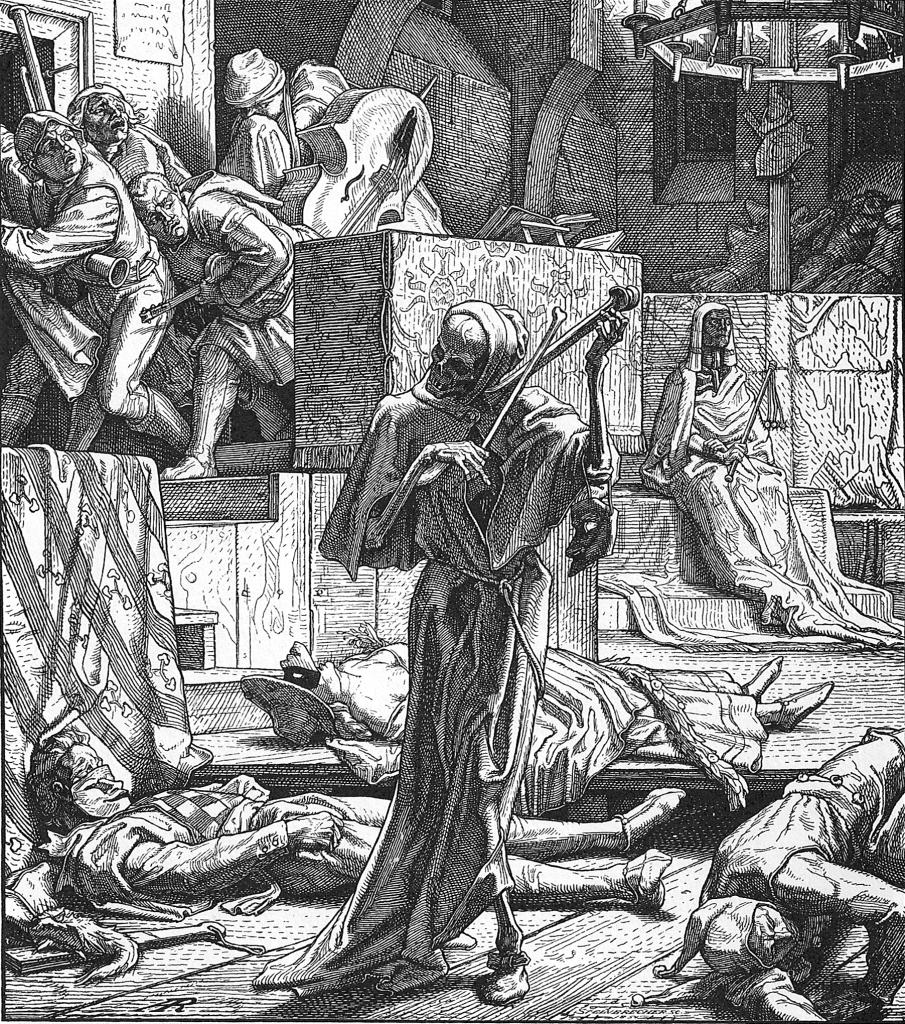|
 quote:Pamphlet nailed to the doors of public buildings throughout rural France:
|
| # ? Nov 19, 2012 00:31 |
|
^ thank you  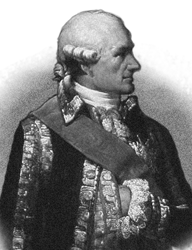 Please use your avatar or I don't know who is posting, thanks. I propose the -Use Your Avatar- act which should be expedited through legislature quickly, it will require that all posters use their avatar when posting.
|
| # ? Nov 19, 2012 00:46 |
|
Marie Antoinette Queen of France Warrior Princess   Sup bitches, just came out of hiding in my secret Paris manor to let you know the turn is due in about 22 hours. Please try not to be late, as there are many important events to attend to. Enjoy the party in my absence. Sup bitches, just came out of hiding in my secret Paris manor to let you know the turn is due in about 22 hours. Please try not to be late, as there are many important events to attend to. Enjoy the party in my absence.  Adieu!
|
| # ? Nov 19, 2012 00:58 |
|
Georges Danton Forgive me, I have been occupied with speaking directly to the people of Paris at various salons and clubs since the May Revolution, but have been monitoring the affairs of state closely. I humbly accept our Citizen-King's nomination as Minister of Foreign Affairs in this crucial hour.
|
| # ? Nov 19, 2012 01:05 |
|
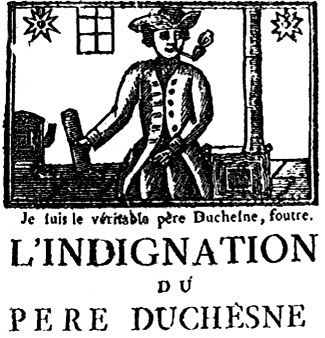 A BRIEF LETTER TO THE WORKING MEN AND WOMEN OF FRANCE, AND TO THE TYRANTS THAT THREATEN THEM, BY FATHER DUCHESNE 1. It is now clear that the monarchists are not satisfied with keeping you in chains, they have decided to start a gruesome campaign of mayhem, starvation and slaughter, much like the Spartans of old did in their secret rituals. THE WORKING MEN AND WOMEN OF THIS NATIONS NOW OWE THEM NOTHING, not even the most trace of respects to be held to your equals in a functional Republic. the resources of your old Father Duchesne are limited, so sadly I can't give you their complete location, but THOSE WHO FOLLOW THE COWARD CITIZEN LOUIS CAPET ARE TO BE CONSIDERED ENEMIES OF THE PEOPLE. As such, the people are free to HELP THEMSELVES TO THEIR HOUSES AND WHATEVER THEY FIND IN THEM, BE THEM INHABITED OR NOT. It is recommended that all men and women eager to take upon their shoulders this crucial mission of the New Republic should approach the nearest recruitment station of the Revolutionary Guard. 2. Let it be known that whoever takes upon him or herself the task of DELIVERING THE HEAD OF THE TRAITOROUS JEAN-BAPTISTE DONATIEN DE VIMEUR, (WHO STYLES HIMSELF COMTE OF ROCHAMBEAU), SKEWERED ON A STAKE, TO BE PRESENTED TO THE JOYOUS PEOPLE OF PARIS, shall by all lights and all reason be forever immortalized as a Founding Hero of the Republic, his or her name resounding through generations. For assistance on the craft of beheading and skewering, please consult your nearest "Le Père Duchesne" salesman. 3. While the priorities of the people are focused on more pressing matters at the moment, it is advised to the so-called "Citoyen Egalité", Louis Philippe, that if he does not take immediate measures to abolish the Monarchy and secure a Republican system completely devoid of any trace of hereditary autocracy, nobility and despotism, he will, too, be considered an enemy of the people. This revolution does not attempt to trade a King of Frowns for a King of Smiles, it seeks to free us from the yoke of royalty once and for all, without exception.
|
| # ? Nov 19, 2012 01:10 |
|
Georges Danton Excerpts from some speeches given to the people of Paris following the May Revolution: quote:Why did I save the life of Louis Philippe? quote:When you see them, ask the soldiers blockading Paris: when we are attacked, who will you fight for? Will you be lapdogs for the Emperor? Will the armies of Prussia reward you for your faithful service? All of them must ask their brothers in arms where they will stand when our enemies decide they have had enough of those people in France choosing their own destiny. Will they join the honorable Armée du Rhin in putting service to the Nation above the political ambitions of their commander?
|
| # ? Nov 19, 2012 02:22 |
|
Georges Cadoudal The Warmongers posted:It is the essence of a tyrant to believe that a threat to his person is a threat to all the world. And have we not seen the tyrants in Paris scream and shout in terror, that the war that they began might not end in their victory? Now that their sins come home to roost, they raise a cry and hue that it is not they who are at risk, but all the people! The cowards would see the men and women of France die for them, as they begged their lord Satan for deliverance! Peoples of France, this is your battle, for they have thrust war upon you! They have asked in the armies of Europe because of their madness and tyranny! Speech to the sailors at Brest posted:Hail, noble sailors! I come before you, with a plea of pity. Know that the orders of the usurpers does nothing but harm to the good people of this Duchy, people who have done you no harm, who have sheltered you in their midst in better times. The tyrants would see this peaceful people broken, reduced to slaves of ungodly decrees! Nobles of Brittany, I have before you a proposed budget. I ask for your assent to its measures. code:
|
| # ? Nov 19, 2012 03:02 |
|
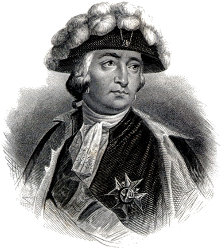 King Louis Philippe I, "Le Roi Egalité" I nominate Charles Hector for Minister of the Marine. His skills as a sailor and administrator are second to none. I would be honored to have him head our Navy. Monsieur Cadoudal does not mention that the blockade was to starve out the rebels who hate our fledgling Republic. They would take your rights in a heartbeat and leave you as nothing but serfs tied to ships. Robespierre, Lafayette, and myself started this revolution for you, for all the people of France. Ignore Cadoudal's ramblings, he is merely a puppet of the rebels who hate you, who hate your liberty, who hate your Republic! We shall crush the rebels and restore liberty, equality, and Republican ideals to Brittany! We shall unite France once more!
|
| # ? Nov 19, 2012 06:31 |
|
 Steward Charles Armand Tuffin, marquis de la Rouerie Steward of the Throne of the Elective Duchy of Breizh/Brittany for Duke Luis II I grant consent to the proposed budget for Brittany, and ask for the Noble Assembly to pass it.
|
| # ? Nov 19, 2012 08:33 |
|
 Olympe de Gouges, playwright Excerpts from Jeanne d'Arc, l'agonie et l'extase: une moralité contemporaine Scene I posted:Young Jeanne: I see in the beauty of those lilies strange faces looking down at me. But who can they be? And how can they be so beautiful? Scene IV posted:Loutish knight: You are brawny, headstrong, and smell of elderberries. Tell me, Maid of Orleans, hast thou ever been mistaken for a churl? Scene IX posted:Dauphin: But I don't understand, Jeanne. Lord Berthou is a loyal vassal. His family has fought for the cause of the House of Valois for generations. Scene XII posted:Messenger: My master, Philip the Good, bids thee welcome. Is there any in this rout with authority to treat with me? Or indeed with wit to understand me? Not thou at least! It needs more to make a saint than fever dreams, or a rabble such as this. Why, any brigand of the hills can show as good a following!
|
| # ? Nov 19, 2012 08:33 |
|
Colonel Wood posted:
 I humbly accept this post, and promise to continue to serve the nation as faithfully as ever.
|
| # ? Nov 19, 2012 08:55 |
|
311x640 Koca Yusuf Pasha, Ambassador of the Ottoman Empire Frenchmen of the assembly, These are dark times for you, and your minds must be focused on them, but there is also a state to govern and you must not lose sight of that. In that vein I have a proposal for your noble minds to consider. Trade is the life blood of all nations, and it is always fed upon by the states in question to enrich their own coffers. And though the state has this right, and does much good work with this, it does impede trade. I propose that as a show of friendship, and cooperation between our states we create an act of Ottoman-French free trade abolishing all tariffs and trade barriers between french and ottoman merchants, this will be especially beneficial in allowing high quality Egyptian cloth to fully take advantage of the skilled craftsmen of the french textiles industry, allowing for us to undermine British and Indian textile interests.
|
| # ? Nov 19, 2012 10:08 |
|
 Marquis de Lafayette, Minister of War, Commander of the National Guard I fully back the Grand Vizier's proposed Ottoman-French Free Trade Compact. Not only will this result in immediate economic benefit for both of our great nations, but will lead to stronger ties with our natural allies in the Orient.
|
| # ? Nov 19, 2012 10:14 |
|

|
| # ? Nov 19, 2012 11:18 |
|
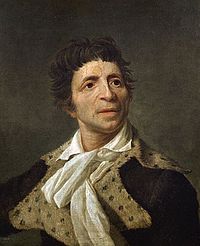 Written from the bathtub of Jean-Paul Marat Citizens! Let me tell you a story. Consider a man, ill and plagued with a debilitating skin disease. When he soaks in the healing mineral water, with a rag of vinegar on his face, he can feel normal, he can feel like a full-fledged human. However, if he goes out, even to do the most banal tasks, even without any exposure to the harsher elements, his skin deteriorates, he bleeds and oozes from his face, and the old blisters in his nether regions burst and coat his unmentionables in blood and pus. It should be obvious by now where I'm going with this: the bath tub is a democratic republic. Outside of it, even the most benign, gentle monarch will lead a man to discomfort at best and grotesque disfiguration at worst. I, Jean-Paul Marat, refuse to abandon my bathtub even for Louis-Philippe, an honorable man I wish no ill. It's not that I think that Louis-Philippe is a bad king, it's that the act of ruling as a monarch is inherently evil. Citizens, I beseech you. Your body is telling you, as it told me, that you cannot take this anymore. Notice the blisters under your testicles, the blood pouring out of the pockmarks on your face, the skin peeling off your flesh! This is monarchy. The only cure, the only cure I say, is the mineral water bath of the democratic republic and the soothing vinegar rag of liberty. Vive la France!
|
| # ? Nov 19, 2012 16:59 |
|
 quote:Update on the situation in Paris
|
| # ? Nov 19, 2012 17:26 |
|
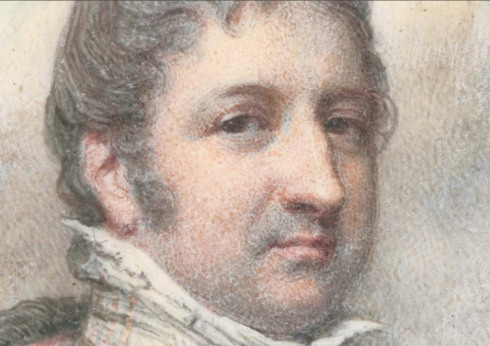 From: The Prince-Royale, Louis Philippe de Bourbon, leader of the Orleanist Faction To: Jean-Paul Marat, Editor of L’Ami du Peuple You have written a fictional short story about a bathtub, in your own personal newspaper. Let me write about the real world. Or, rather, let me draw attention to the fact that (a) Paris is currently under siege by the L’Armee du Nord (b) de Sade's anarchists are committing numerous crimes against humanity (c) the Breton continue to wage their illegitimate and reactionary rebellion to establish a state that cannot and should not exist (d) we are in danger of losing our Haitian colony and the revenues that are needed to sustain our own welfare programs back home (e) we are on the brink of being invaded by Austria (f) and the 'radical' Enrages wage their private struggle to overturn all forms of order and stability, to wage "revolution" for revolution's sake, without any care for the actual needs of Frenchmen This is why we have a monarchy. In a time of national crisis and disaster, you need a strong guiding hand and figure to provide national unity and guidance. France has been besieged and attacked many times. But it was the King that kept France alive and allowed to sustain itself, even when we fought the Hundred Years' War. Think what would happen if we indeed had a Democratic Republic. You would have chaos, as there would be no strong leader that would be able to make decisive decisions. Just look at how an American ambassador prevented the establishment of a province of Haiti just by publishing a few pamphlets! A foreigner! If we indeed have a democracy, we would be continually in turmoil, and there would be no strong leader to get us out of that turmoil. But you might say "Why not give power to the 'people' as a whole"? The people don't exist. Factions exist. Mobs exist. Special interest groups exist. Even powerful leaders with a strong force of personality exist. But not the people as a whole. If the People does exist, then The People can only be called a schizophrenic entity, who will one day advocate absolute monarchism one day and abolishing the state the next. He will be a madman, swayed by the itty-bitty bits of passion and pamphlets. Doesn't even matter where they came from. What we need is a system that can ensure that the French citizens will be able to express their views and implement policies, guided by the hands of a strong, capable executive who derives his legitimacy from the consent of the governed. The French Revolution of 1789 was fought for that principle. This system has some problems in implementation, and they are only now being remedied. But it is this system, and not a democratic republic, that will lead France to glory. The only problem with monarchism is that the system of hereditary rule and complete subservience to absolute despotism has led to the Traitor King to grow arrogant and haughty. It has led him to even consider treason against the French State. Well that King is gone now. The new King is here, and he's going to restore the French monarchy and ensure newfound stability and order, and enshrine this principle among all: that The French King is subject to the French constitution and the will of the French State. Long Live The Revolution. Long Live The King. === Email: igorhorst@gmail.com
|
| # ? Nov 19, 2012 19:34 |
|
 Steward Charles Armand Tuffin, marquis de la Rouerie Steward of the Throne of the Elective Duchy of Breizh/Brittany for Duke Luis II Open Musing of an Open Mind: On ‘Consent of the Governed’ posted:The Republicans and their allies like to talk about the Consent of the Governed and how a government is faulty and worthless if it can not earn it for itself. They say that if a people feel they have been wronged and wishes to change their government they may do so - by any means necessary. They talk of the Social Contract and how if one side breaks it, so can the other. They talk of all these things and apply it one way for the French, and another for the Breton.
|
| # ? Nov 19, 2012 19:57 |
|
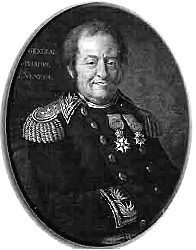 Alexis Le Veneur de Tillières, commandant l'Armée du Rhin Address to the young men of Strasbourg during an Army of the Rhine recruitment event People of France! I shall not burden you with minced words: the shadows enveloping our country grow longer by the hour. It is clear to all of us that the danger of civil conflict looms over us, even as the hungry eyes of Europe turn to the discord in Paris with a renewed appetite. Even clearer is the fact that any war--whether waged between the various factions of France or the Germanic powers upon us--would be ruinous to the folk of this valley and beyond. It is for this reason that I appeal to you all for support! The Army of the Rhine's duty is to defend the men and women of France, regardless of who sits on the throne in Paris, regardless of what social contract has been drawn up. To the monarchist I say: my soldiers will defend the ancient culture and spirit that made France the greatest nation on earth. To the republican I say: if we are truly to determine the future of our country we must first secure its defense against intrusion. We must put aside our civil strife and look to the people--whether subject or citizen--who most stand to suffer from war. To anyone willing to set aside their disputes and join me in the Army of the Rhine, your service will not go unrewarded and unhonored. Your wives and children, should you have them, can find a place of safety in my Grand Camp. In addition, I give my assurance that, so long as I have power to prevent it, your property will be kept safe from siezure should you choose to volunteer. If you cannot devote yourself to my cause, then at the very least I ask you to share whatever materiel or money you can spare, with my personal promise that it will only be used to the very necessities of military life. It breaks my heart to have to appeal to the men and women of my country to arm and feed the soldiers defending them. The coils of violence that have gripped our government are a shameful blight on our society and I can only beseech the people of France to trust in me, for I know they have learned that trust in government and its attendant parts can come with a bitter price. I pray my appeal will find the generous and noble spirit of the French people unbroken by recent events.
|
| # ? Nov 19, 2012 20:37 |
|
Georges Cadoudal Written in Georges' diary with the scrawl "129" posted:A gradual canticle. Out of the depths I have cried to thee, O Lord:
|
| # ? Nov 19, 2012 20:53 |
|
 Turn is due in two hours (6 PM EST). Send them to vanhelsing420@gmail.com and qu0pr0quid001@gmail.com so that way we can get them processed tonight! Turn is due in two hours (6 PM EST). Send them to vanhelsing420@gmail.com and qu0pr0quid001@gmail.com so that way we can get them processed tonight! 
|
| # ? Nov 19, 2012 21:00 |
|
 King Louis Philippe I, "Le Roi Egalité" I must again commend The Army of the Rhine and General Veneur for their bravery in the face of Prussian aggression. Aggression that went unchecked during the rule of Louis XVI and is now laid at the feet of our fledgling Republic. In recognition of the sacrifices of our fighting men and the support of the women now serving in support roles in our military I propose the Armed Services Care Act giving veterans of the Army and Navy pensions and veterans benefits for their service. For too long they have been neglected by a throne deaf to their needs and blind to their heroic service. No longer, I say! Join me in supporting our troops as they fight the true enemies. I urge the Army du Nord to desert their posts on the useless siege of Paris and join the army of the Rhine to fight the true menace to our nation! Ignore the commands of your corrupt Breton Puppet General. He cares not for you, he cares not for France, he cares only for his Breton masters who keep him on a short leash. Go forth and do your patriotic duty to defend France!!
|
| # ? Nov 19, 2012 21:58 |
|
 Claire Lacombe On the May Revolution One of the main causes of the Revolution was the scarcity of common goods. The material consequences of the failings of the Ancien Régime— the masses of the French people left without the coin they needed to survive by a taxation scheme built for the enrichment of the great men of the nobility and clergy— were impossible to ignore, and the people rose up and cried out for justice. Food, money, and the other necessities of life remain scarce, but the new masters of France have succeeded in bringing an abundance of one resource: Kings. For, while the desolated France of the Ancien Régime had to make due with one, in this glorious new age we have two. The women and men of France can now choose whether they'd prefer Louis Philippe I or Louis XVI to exercise mastery over their destinies. And that's not all! Many of the men jockeying for power put on monarchial airs and pretensions— Charles Armand Tuffin calls himself a humble steward of Bretons, yet a crown sits upon his brow all the same. Louis Stanislas Xavier covers himself in royal pomp and ceremony as he conspires abroad with the enemies of France. And, should a king be insufficiently regal, Emperor of Austria has also decided that the future of France is his business. Liberty blooms! It has become increasingly clear that the institution of monarchy— even "Constitutional" monarchy— is incompatible with the liberty of the people of France. Even in the most radical conception of Constitutional Monarchy, one where the king is entirely powerless, he is still a symbol of inequality and injustice. The existence of a King says, simply, that some people are born higher than others, and one man— and it is always a man, the institutions of monarchy being hostile to women in particular— is allowed to sit above all others. Not because of his accomplishments, or individual virtues, or the will of the people— simply because he has the right blood flowing in his veins. The notion that some people are simply better than others permeates France. The wealth of traitorous emigre nobles, the institution of slavery, and the power men hold over women all stem from this pernicious idea. The existence of a monarchy means that the entire state is ordered in accordance with this unnatural and unjust law, from the highest echelons on down.
|
| # ? Nov 19, 2012 22:11 |
|
 Olympe de Gouges, playwright More excerpts from Jeanne d'Arc, l'agonie et l'extase: une moralité contemporaine Scene XVI posted:[At the execution. The play's centerpiece.] Epilogue, Dauphin's court - this scene, like several others, differs from folio to folio and is recorded as being performed differently in different performances posted:
Final scene, occasionally performed, thought to be a 'teaser' for a followup work posted:[Battlefield after battle, fallen pennants beside broken armor]
|
| # ? Nov 19, 2012 22:40 |
|
Georges Cadoudal Speech to the men of Rochambeau posted:Men of arms! My brothers in Christ! I greet you!
|
| # ? Nov 19, 2012 22:55 |
|
Rincewind posted:
 Agreed, for the most part. Both sides are looking for help to further their causes, either a return to the status quo for the monarchists, or a new republic for the Jacobins, but what have both factions displayed in common so far? An unwillingness to consider the state of the rights of fully half their subjects and citizens, that is to say, the rights of women! From being unable to vote, all the way to not being able to become head of state under a monarchy, things need changing! Now, now, now is the time for women to make themselves heard, and demand full equality under the law! Full consideration in the eyes of their male peers! The proper amount of respect from the other half! The blood of patriots and traitors both has been spilled to allow women this opportunity, and it is this precise moment when the fairer sex must learn to speak, and say "We hold up half the sky!"
|
| # ? Nov 19, 2012 22:56 |
|
 Alexis Le Veneur de Tillières, commandant l'Armée du Rhin In an address to his gathered officers Gentlemen, gentlemen. I hope we've all sufficiently recovered from our dear Lieutenant General Agnès's retirement party. I won't keep you too long; I simply wanted to officially announce the promotion of André Masséna to replace him. Many of you privately voiced your encouragement for this appointment; you shall be glad to know your commander is not so bull-headed as to ignore foolish advice! In all seriousness, General Masséna has earned his promotion through his devotion to France and the welfare of her people. I join the entire Army of the Rhine in commending him.
|
| # ? Nov 20, 2012 00:06 |
|
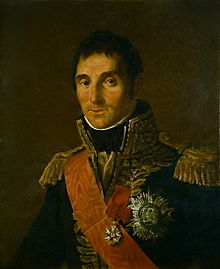 Général André Masséna Thank you, General de Tillières. I am honoured to serve under a true hero of France such as yourself. Only in France could a man with beginnings as humble as my own attain this position, and I shall endeavour to prove that your faith in my abilities is not misplaced. To France, and to our inevitable victory over any foolish enough to attack her!
|
| # ? Nov 20, 2012 01:06 |
|
Saint Just A speech to the Jacobin Club "So is this to be our Revolution? Do we trade one king in for another? Let me make this clear, my objection to Louis XVI is only secondarily that he is a BAD king. It is primarily that he is a king. For no king can be just. Injustice is the nature of monarchy. It is a perversion of reason and nature. For nature shows us that everywhere man is born free. Freedom is the natural state of man, and for one man to elevate himself above the rest, and to claim that he is ordained to rule, not because of his skills, but merely because of his birth, is the most infamous crime known to Nature. So kings are, by their perverse nature, enemies of mankind, of nature and of reason, and like all monstrosities and grotesques, must be destroyed. This is what we MUST fight against. We must resist the tenet of nobility; the tenet that one man is superior to another by birth. So why do we settle for what just happened? A noble replaced one king with another. Is this progress? I know that it's said that THIS king will be be a better king, a more capable king, a king more in love with liberty. If this king were in love with liberty, he could best serve liberty by taking a razor and cutting his own throat! Why are we afraid to go to the people? Don't we know the people love liberty? Hasn't every move forward in this revolution so far been at the urging and by the action of the people? Do not the people; does not the Paris Commune show their support for the Jacobin platform by naming Robespierre President? It was not the noble Lafayette who elevated Robespierre, but it was the People. Why is Citizen Robespierre afraid to use the power he is given? Why does he hesitate to call on the people? Does he think that they will not support us in creating a Republic? I say it is the people who want the Republic! It is the people who know most what the cruel reign of kings and nobles has brought on France. Robespierre has but to lift his hand, like Moses, and the people will rise up as a mass and fight for the Revolution. So why then do we take the crusts of "constitutionalism" when we can instead dine on the loaf of Republicanism? Now is the time for boldness. Now is the time for action. Now is not the time for timidity. We have committed ourselves to liberty, gentlemen, sworn a sacred oath, and now we must do our duties.
|
| # ? Nov 20, 2012 03:46 |
|
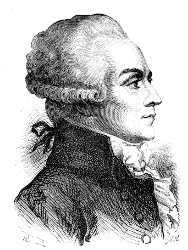 A speech to the Jacobin Club I find the calls of "Robespierre has abandoned his desire for a Republic" to be a rather insulting notion. No man wants a Republic more than I, but I will not sacrifice that Republic on the altar of hasty action. Do you not think I know the people yearn for a Republic? Do you not think I desire that King Louis Phillipe, as virtuous a man as he may be, step down (as he himself has promised to do). Could he be lying to me? Perhaps. However, he does so at his own risk, and he has thus far been an honorable man. Yes, we could rise up, we could storm the palace, we could raise the bloody flag of Republicanism, we could do all these things that young Saint Juste advocates. Then where would we be? Still surrounded by the armies of our enemies, still subject to invasion by the forces of Europe, still at mortal peril. The only difference would be that we would alienate a great deal of our fellow countrymen and the greater world in the process. Is having the Republic for three months worth the lifetime of Absolutism that will result when the armies of Europe smash into a weakened France? Would accept living a lifetime as serf under an absolute monarch, just to be able to say, "I had the Republic for a few weeks!" Will you be so unconscionably foolish? Think, goddamn you, think! Will you let your need for ideological purity, your blind desire for haste, your utter foolishness destroy all of our hard-earned progress? This is exactly what the Royalists wish you to do! They taunt you, they tease you, they call me dictator and call me king. They want you to get angry! They want you to give in to your emotions, your haste, they want you to make a mistake! They want you to make the mistake of fighting amongst ourselves, while they grow ever stronger and attack us! The Republic is coming, but only if we work together! If you attack me, if you attack this government, you stand to lose it all. I pray you allow cooler heads to prevail. Finally, to the frequent calls to "Call up the People" - we're doing that in the field, where the great mass of the French populace is even now enlisting in the great Army of the Rhine. If you expect me to call the bakers, cobblers and masons of Paris and throw them at the foe camped outside our walls, you are either foolish, thirsty for the blood of our own people, or both. I am not going to simply thrust a musket into the hands of some untrained father, brother, or son, and send them against trained soldiery. It is foolishness, madness, and ridiculous.
|
| # ? Nov 20, 2012 03:57 |
|
 There was a time when men were kind, when their voices were soft and their words inviting There was a time when love was blind, and the world was a song and the song was exciting There was a time...then it all went wrong... I dreamed a dream in time gone by, when hope was high and life worth living, I dreamed that love would never die, I dreamed that God would be forgiving. Then I was young and unafraiiiiiiiiid, and dreams were made and used and wasted. There was no ransom to be paiiiiiiiiiid, no sung unsung, no wine untasted. But the tigers come at night, with their voices soft as thunder, as they tear your world apart, as they turn your dream to SHAAAAAAAAAAAAAAAAAAAAAAAAAAAAAAAAAAAAAAAAME. He spent the summer by my side, he filled my days with endless wonder. He took my childhood in his striiiiiiiiiiide, but he was gone when autumn came. There's still a dream he'll come to meeeeee, that we will live the years together, but there are dreams that cannot beeeeeeeee, and there are storms we cannot weatherrrrr I HAD A DREAM MY LIFE WOULD BEE SO DIFFERENT FROM THIS HELL I'M LIVING SO DIFFERENT NOW FROM WHAT IT SEEMED NOW life has killed...the life...I dreamed...
|
| # ? Nov 20, 2012 04:06 |
|
 Marquis de Lafayette, Minister of War, Commander of the National Guard Any actions to disrupt the order of Paris while the enemy wail the Breton chants of Louis Capet beyond our battlements and the German hordes mobilize to rape France are a direct threat to the safety and security of our nation. The National Guard will not hesitate to protect the citizens of Paris from militants of any stripe or creed, utilizing all available force if necessary. This is the only warning that will be issued to would-be traitors.
|
| # ? Nov 20, 2012 04:30 |
|
News for Summer 1792 - Turn 4 NEWS FROM ROBESPIERRE’S DESK: 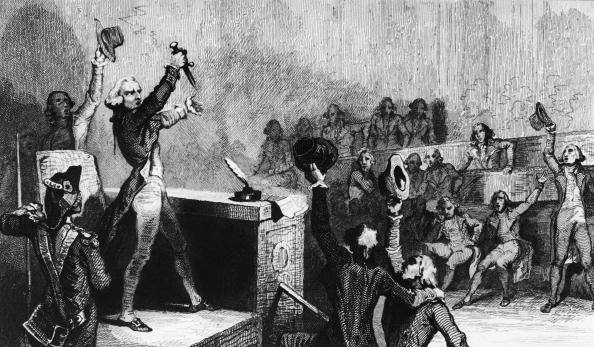 - Yielding to complaints from the American embassy about security, Robespierre approves the Petition to Expand the American Embassy. A few Parisians grumble about having to donate resources to foreigners during a time of hardship, but implementation occurs without a hitch. Ambassador William Short is granted ownership of a large estate outside Paris. Jacobins will later regret this. - The ruling party of Paris unanimously approves of the Constitutional Amendment on the King’s Veto. The King may now be overruled by a two-thirds majority in the Legislative Assembly. This amendment is championed by Jacobins as evidence of democratic process, but it is ignored by Feuillants who view Robespierre as an unlawful leader. - Robespierre tentatively approves the Petition Regarding Maritime Trade, preventing a diplomatic split between Paris and Philadelphia. American ships can now trade in Breton ports unheeded. Although the American economy sees some improvement, the most drastic effects can be seen in Brittany where food is arriving for the first time in a year. - The Emergency Emigre Act passes with no opposition. Penalties for emigres have been dramatically increased, discouraging foreign travel for the French nobility. -The Emergency Levee Act also passes, enacting conscription across Paris. While some are able to avoid serving, the act remains an important first step in increasing France’s military might to stand against the Holy Roman Empire. - The Camp Followers Act passes with much celebration. France is beginning to mobilize for war. - In what is largely regarded as Robespierre “cleaning house”, Danton is officially appointed Minister of Foreign Affairs, Lafayette is appointed Minister of War, and the Comte d’Estaing is appointed Minister of the Marine. DOMESTIC NEWS:  - More writings are published calling for the forced seizure of all emigre lands. Rumors swirl of mass uprisings in Occitania, but given the chaotic situation no one can determine fact from fiction. The only guaranteed information is that the peasantry are beginning to demand more rights in France. Whether they are using legitimate channels or violence remains to be seen. - The “Medal of the Revolution” is introduced in France, becoming its first and most prestigious medal of honor. Awarded to all those men in the National Guard who fought for Louis Philippe in the May Revolution - the bulk of the guardsmen - it nets a slight increase in morale, and its very minting wins Lafayette prestige. - Further barricades are erected throughout Paris by the National Guard, making the prospect of an attempt to breach the city walls by assault a very bloody affair. Paris soon earns a new name popular among the peasantry in the surrounding farmsteads: “Lafayette’s Fortress”. - With all of Paris focused on Armand’s execution, no one notices the former Minister of War and leader of the Swiss Guard, Karl Josef von Bachmann, disappear through the Paris sewers in disguise. He scrambles out of an unused sewer and circles around toward the head of the besieging army. - A small delegation from the Army of the Rhine meets with the officers in charge of the Paris siege. The Army tells of a large-scale mobilization in the Austrian Netherlands and in the Rhenish states of the Empire. Rumor spreads through the camp the Germans will be at the border within months. The officers agree to send four-thousand men to help protect the border. Most redeployed troops are glad for the transfer from the army besieging the capital. - As de Tillières’ men leave, Bachmann arrives somewhere outside the gates, moving quickly towards the officers’ tent in the Army of the North. The soldiers outside are tired, bags formed in their eyes. As the Legitimist Minister of War parts the folds of the tent and enters, the officers hunched over the table planning the siege look upwards. Their leader holds fresh orders from the comte de Rochambeau in his hands, but the Swiss man asserts himself, claiming that his orders supercede those of the Marechal’s, as he was the last Minister of War appointed by the king. The officers, unsure, agree for the time being.  -Babeuf and his followers gather in Versailles, where they hold a rally in support of Republicanism. All monarchs, Legitimist and Orleanist alike are decried. From there, Babeuf and an army of 5,000 march toward Paris intent on removing at least one illegitimate ruler. Unfortunately, the army stops them from entering the city, however Babeuf is forced to march around it. Comparing himself to Joshua and Paris to Jericho, Babeuf’s forces march around the walls of Paris loudly singing Republican songs and condemning citizen inequality. - Pamphlets descend on the besieging camp, each one decrying Rochambeau and the royalists, with several prominent Montagnards climbing the walls of Paris to deliver rattling speeches to the men gathered there. Morale is shaky at best... - Georges Cadoudal arrives at the camp outside Paris, met with some mild applause as he approaches, looking for the Marechal. Finding Bachmann alive, he expresses visible relief, clasping the man on the shoulder and jesting merrily. He asks when the best time to give his speech might be. Suddenly, the Minister of War flicks his hand to a pair of soldiers standing nearby, who approach from behind to arrest the Breton and place him into their custody. Cadoudal shouts a fierce condemnation of the Swiss Guard’s betrayal, reminding him of the oath he swore to the King, but the Bachmann refuses to even acknowledge his presence. He stares intently at his gloves. Cadoudal is left to rot in a large cage, with soldiers posted there day and night. Rumors of the famed speaker’s imprisonment cause uproar in the camp, with some men openly throwing down their arms and refusing to fight. Bachmann has them locked in with their “so-called hero”. - The Prussian ambassador is caught by Bachmann while trying to escape the city. Many soldiers demand his immediate execution as an enemy of France, but the Swiss commander is careful to mind his manners, bidding the man a good journey and sending him on his way. -------------------------------------------------------------------------------------------------------------------  The Battle on the Seine pre:“... I, that on my familiar hill Saw with uncomprehending eyes A hundred of Thy sunsets spill Their fresh and sanguine sacrifice, Ere the sun swings his noonday sword Must say good-bye to all of this;- By all delights that I shall miss, Help me to die, O Lord.” - Suddenly, the door to the enormous Breton’s cell swings wide open, undone by the guard ordered to watch over him after a particularly convincing speech from Cadoudal. He is followed by the men who had threatened desertion on his behalf, and loudly proclaims the Minister of War a Swiss traitor before the entire camp. A cry of “Rochambeau!” goes up from the crowd. Then another, and another, and another, and soon the entire army is rallying behind their former general. Seizing the momentum, Rochambeau has Bachmann arrested and thrown into the same cell he had forced Cadoudal into. Holding a single piece of parchment in his hands, Rochambeau gathers his men, and explains his plan. The Prussian ambassador surreptitiously takes the chance to depart. - When dawn breaks the next day, Lafayette and his men sally forth in a surprise attack! Their numbers appear to be almost overwhelming as they pour out of the southern gates, hundreds upon hundreds of men arrayed into two separate forces in an ingenious attack upon the besiegers. They seek to encircle the entire southern detachment of the Army of the North, forcing a surrender. A cry of “Fire!” goes up from the darkness, and the National Guard sees only too late that the army has already formed into lines awaiting them! A volley of shots pierces through the first wave of attackers, with Ney’s brigades being particularly hard hit. - Lafayette has prepared for this.The quick assembly of ranks was good training on Rochambeau’s part, he reasons, but not enough to counter his sheer strength of arms and the element of surprise. He presses the attack, with Ney’s forces pushing back the demoralized soldiers onto the other side of the river, looking to complete the encirclement. Then, just as his men look to be gaining the upper ground, the military reorganizes and pulls back, revealing the cannons - cannons placed in just the right positions to reign hell over the twin attacking armies. It’s a trap! - Artillery fire begins to fall all across the battlefield, blowing into the left flank of Lafayette’s line like a wrecking ball. From within Rochambeau’s camp, sabotage strikes at the worst possible moment. Gunpowder stores suddenly go up in flames along the siege lines, the shock completely debilitating the artillery corps. Lafayette’s best trained line infantry are sent ahead, capturing the cannons. - The battle has been raging for hours. Thousands of men lay dead or dying on both sides, though currently the National Guard holds the advantage, with the northern forces completely cut off from the rest of the battle. Ney circles the Seine around 3:00 PM, forcing a mass surrender of large parts of Rochambeau’s army. - Cavalry called in from the supply center in Lille finally arrive, pouring in - some six-thousand of them. Two squadrons of lancers lead the charge, with hussars on the wings and trumpeters alongside. They slam into the back of Ney’s double line, yielding a sudden opening that causes mass panic in Ney’s ranks. The commander is unable to control them, and they begin a rout back behind the walls of the city. Lafayette, thinking Ney has ordered a retreat, gives the same command, pulling back despite having pushed hard against Rochambeau’s forces. Rochambeau’s men refuse the order to give chase! - As the dust clears, Lafayette’s men hunch down inside the city. Both sides are extremely bloodied. Lafayette has lost 10,245 men, with Rochambeau having lost 8,530 and 12 cannons, along with large parts of his gunpowder stores. Behind the gates, there seems to be a traitor lurking deep inside Lafayette’s inner circle. Too much went wrong. “Too much...” - Despite the inconclusive battle, the inordinate bloodshed seems to have played directly into the propaganda the Jacobins have spent the last few months distributing in the camp. The field may be his, but the minds of his soldiers are not. The officers meet with Rochambeau and tell him plainly that the men are completely demoralized. They would rather crown a mule as king than fight more of their brothers, kill more of their friends, while foreign troops plan to march on French soil. The siege of Paris must end. He will either lead them to victory against the Germans or lead them nowhere at all. - As the sun sets over the battlefield and Rochambeau considers the advice given to him by his officers, a strange man jumps into his tent waving around a pistol. He demands the Comte surrender immediately and accept the supreme authority of the legitimate king, Louis Philippe. After a moment of consideration, the comte refuses and shouts for help. The assassin fires his weapon and shatters Rochambeau’s kneecap. Guards are quick to arrive on the scene, arresting the man and providing the comte with medical assistance. An investigation later reveals the suspected assassin to be on Louis Philippe’s payroll. ------------------------------------------------------------------------------------------------------------------- 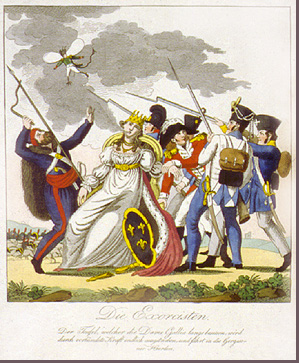 - The comte d’Estaing, now Minister of the Marine, enters the city with much fanfare, bringing with him the many female sailors he had tried - and failed - to recruit into the Navy during his tenure as admiral, along with some of his closest associates. He is quick to assume offices in the city, and sets to work securing proper funding for the navy. - Lafayette’s failure to repulse the royalist army erodes some of his influence in the city. Saint-Just delivers a speech at the center of the Place des Vosges, angrily demanding an end to the tyranny of kings of every stripe. The mob cheers his name and, taking their own initiative, attempts to protest outside the Palais Royale and cheer for a Republic. The tense Hessians hired by the Orleanist King panic and open fire upon the crowd as they draw near. This only enrages the crowd, prompting another volley of shots from the terrified mercenaries. Dozens are killed, more wounded. Only the quick and cautious arrival of Lafayette’s National Guard manages to prevent the situation from exploding into a full-blown riot. The tensions in the city are at a tipping point, and it seems a simple push would be enough to cause a collapse. -Pamphlets decrying the injustice of the new monarchy are issued across France. It declares that the Revolution is dead, unless the city of Paris rises up against Lafayette and his false king. The writing would certainly be widely popular in Paris, if it could reach the city. Unfortunately, due to the ongoing siege almost no news from radicals beyond the city reaches the people. The Enrages of the city remain faithful but have only Roux for a leader. - The first victim of the new regime is Armand Marc, the comte de Montmorin and former Prime Minister, who is brought before a tribunal of the people, set up in the old Luxembourg Palace. The trial is as short as it is decisive - the former minister is found guilty of treason for his many overtures of friendship to the demon German “Emperor” and immediately sentenced to death.  - At noontime the following day, a new invention is unveiled before the people of France: the guillotine. Taking his long, last steps in this world, Armand Marc holds himself steady. He was the man who had fed you when you were starving, he tries to say. They shout him down before he can even utter the first syllable, fruit flying over his head and splattering onto his face. He kneels before the strange device with dignity, but the blade seems to take that from him as well, his head landing in a bucket and his life at an end. Many of the people now agitate for the same to be done to all of the old Feuillants and royalist traitors! - More sacrifices are found to appease the angry mass of voices below. Paris Mayor Jérôme Pétion de Villeneuve is brought up to the scaffold, all while crying out old Republican songs in a desperate attempt to appease the crowd. His voice is no match for the many. His blood waters the tree of liberty. Madame du Barry is taken from her home, dragged behind a carriage toward the scaffold. She dies before reaching the guillotine, but is beheaded regardless. Many Feuillant legislators, despite promises of protection from the National Guard, are rounded up by the angry mob and “tried”. By the end of June, the square over the scaffold has been permanently stained red, but the crowd still thirsts for more. 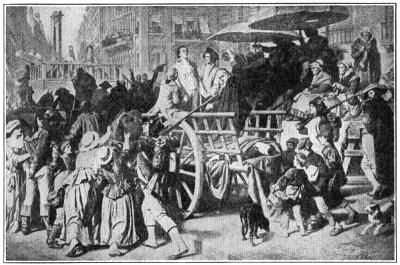 - Of particular note, former Minister of the Marine Claude Antoine de Valdec de Lessart is found. He is charged with, “treason, sedition, murder, blasphemy, incest and homosexuality”. Before the Jacobin government can react, the Minister is dragged up to the scaffold and beheaded. Chroniclers note the man’s fearlessness in the face of death, a trait that will surely be looked fondly upon my future historians. The Paris poor do not share these views and his head is later found flamboyantly painted and attached to the sign of a local tavern. - The Club des Feuillants collapses in on itself, its surviving members either going into hiding or joining the Parti Orleanist. Most fear the guillotine should their old support of Louis XVI be discovered, and the General’s promise of 2,000 men for their protection only mildly alleviates these fears. - After many months of work, Robespierre’s false arm is ready. After days of painful surgery the enlightened despot of Paris is once again armed. Robespierre’s iron grip on Paris is as literal as it is figurative. - King Louis is extremely active in the months following his escape from Paris, organizing visits with foreign dignitaries and writing letters to unknown persons. His protectors in Marseille are disgusted by what they see as flagrant treason but say nothing. The King orders la Garde Vigilante to transport him to Brittany to reunite with his daughter and escape to London. These plans will never be fulfilled. As the group is crossing the Rhone River, they are ambushed by local Enragés, who must have been leaked the King’s location. The King’s protectors scatter and Louis XVI himself is captured. - There is some debate on what to do with the illegitimate ruler. One attacker suggests they execute the King right there and hang his body from a lamppost. This is dismissed outright as being too random, uncalculated. Another suggests they take the King to Paris to face the mob’s justice, but news of the ongoing fighting dissuades them. Eventually, they resolve to take Louis Capet to Babeuf in Étampes. Surely, he will know what to do. He always does. - The American ambassador, William Short, loads his essentials on a covered wagon and makes his way toward the Paris city gates, apparently intent on moving to his country’s new headquarters. A few yards away from his escape, traffic stalls and the wagon is swarmed by sans-culottes, who care little about such formalities as ‘diplomatic immunity’. They scramble onto the vehicle tearing back the cover to see what is within. They are stunned to find the lost queen, Marie Antoinette, aboard. William Short is saved by a group of female fighters who lunge out of the crowd in defense of the Queen. As screams fill the street he whips his horse and races through the city gates, bowling over the guards in his path. As the alarm is sounded, Short races off into the distance toward his private French estate. Robespierre has been duped, but there is likely to be vengence. Already peasants are mobilizing to capture the Queen for Louis Philippe’s reward. - Strange rumors are rising from the depths of France. Some strange force has seized control of the Catacombs. Administrators largely ignore these rumors but they serve to further instigate the public.  - Unfortunately, it turns out such rumors should have been heeded. As William Short makes his daring escape out the city gates, a massive explosion occurs underneath the former American embassy and the Jacobin club. People scramble away in panic as both buildings collapse in onto themselves, killing dozens. “Thankfully”, most of the Jacobin leadership emerges unharmed. - Panic spreads following the attack. Everyone is a suspect. Did William Short destroy his own embassy as a diversion? Did Robespierre destroy it to get rid of his rivals in the Jacobin Party? Was it just a gas leak? Is De Sade beneath the city and bent on taking control from the bottom up? Coffee houses fill with terrified patrons, each with their own version of events. In some locations these spark fist fights. If one thing is certain, it is that Paris has been radicalized. - Father Roux officially establishes The People’s Catholic Church in Paris. With hard times upon the city and the Archbishop nowhere to be seen, the poor flock to join. Whatever remained of Father Roux’s wealth is sold to purchase overpriced food in the city. Citizens are allowed to partake, as long as they adopt an anti-monarchist stance. They need little prompting. Among the staunchest of supporters, Father Roux begins to train priests. - The Enragés go further and establish an orphanage. Children fill the new Church, but there is little interest in adoption thus far. Roux makes no attempt to hide his political stance, and many of the children pick up on it and adopt it as their own. - Following a public awareness campaign by La Garde Révolutionnaire, the women of Paris are further politicized. Overt demands for gender equality can be heard in the poorer districts of the city. It remains to be seen how the government will respond to these calls. - As a result of their lack of support for women’s rights, both the Jacobin and Enrages experience a drop in popularity among women. High society women flock to the Society of the Friends of Truth, bringing large donations with them. - Unorthodox training in the Army of the Rhine continues, though the American delegation the general requested has yet to arrive. They will likely show up sometime in the fall. - Twenty riders are sent out to gather recruits, with countless nearby villages voluntarily offer their able-bodied men to fight and Lafayette’s recruitment drive taking care of the rest. Some ten-thousand men swell into the Army of the Rhine, many of them refugees from the political turmoil in the capital and nearby farmsteads, others just men seeking to defend their country. This will mean a decrease in farm output, however. - Liberte, a masked man in the garb of a common soldier, begins a series of training exercises with the Revolutionary Guard’s female brigades and seems quite the experienced soldier. Some of the female sailors brought with the comte d’Estaing are seen in these drills, though the comte himself suggests they would be better suited working through more legitimate channels than a fighting force. - Surveyors are sent out from the Army of the Rhine to begin charting a detailed map of the valley. They hope to better prepare for a defensive war against the German powers. Many in more conservative military circles scoff at the idea, but whether it will have an effect - for good or ill - has yet to be seen... - Côte-d'Or offers its foodstuffs to de Tillières, allowing the general to increase the rations of every soldier in his army. Together with the increase in military spending, this raises morale substantially, though the inhabitants make it clear that they expect protection in return. - In addition to his duties as Emergency President of the Legislative Assembly, Robespierre adopts the role of Paris’ Chief of Police. Well-known Jacobins are appointed to various positions of power throughout Paris. The overt cronyism is disapproved by Paris, but Robespierre has secured himself a totally loyal government. - A donation drive among the Jacobins, led by Jacques Pierre Brissot, yields some money for the Revolutionary Guard. The organization sees an increase in armaments. - Robespierre forms a Committee of Public Safety, with himself at its head. It is definitely not anything to be afraid of. 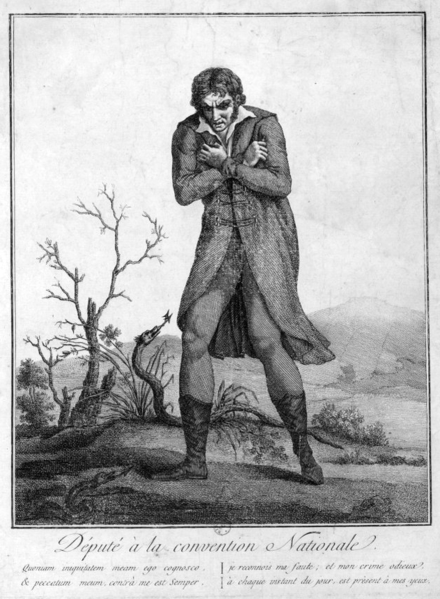 - Robespierre reiterates the King’s reward for the capture of Cadaoul and Rochambeau upon hearing of their near capture at the hands of the Swiss Guard. Jacobins promise to bring the traitors to justice but they lack the capacity to demonstrate much of their power outside of Paris. If Cadaoul or Rochambeau are to be captured, it will have to be while they are in the city. - Robespierre enthusiastically welcomes what federes can make it into Paris following the Battle on the Seine, his grandiose overtures to the radical group stealing them away from la Garde Revolutionairre. Training begins immediately and the group is integrated into the National Guard, though their loyalties are openly in question. - The King issues a royal order, condemning the traitor Tuffin to death. His forces are unable to reach the Steward in his well-defended Breton home, unfortunately. - A number of stories are run in Le Père Duchesne openly advocating and saluting the members of the Revolutionary Guard and its complementary Women’s Brigade. Though some claim that the stories of the heroic guardsmen chasing Louis XVI through the tunnels and out of Paris are mere fabrications, the readers of Le Père eat them up. Morale in the organization increases. 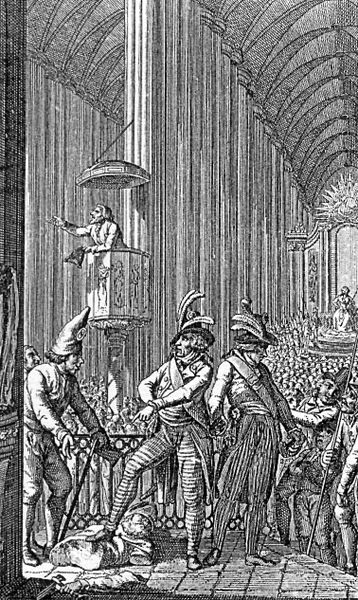 - The “reporters” of Le Père Duchesne are soon seen ransacking the homes of suspected Feuillant and legitimist traitors, and many fear the “interviews” these men give. By themselves, they have brought ten men to the guillotine, and have threatened to do the same to at least a hundred more. These thugs are beginning to become a real problem on the streets of Paris, but their popularity among the people protects them. - Leftist pamphlets blaming the “self-proclaimed King Louis XVI” for the ongoing instability are distributed across Paris. The Orleanist king also delivers speeches across Paris denouncing right-wing elements present in France. These alone do little to convince Paris legitimists to abandon their cause, but they do increase Jacobin and Orleanist morale. - King Louis Philippe distributes food across Paris in hopes of winning over his new subjects. Massively inflated food prices prevent generous rations but it is enough to keep the people alive. Public support will continue... as long as the crown continues to save them from starvation. - Prince Royale Louis Phillipe seizes control of the now disbanded Feuillant paper L'Ami de la France. Immediately he begins publishing pro-Orleanist articles. Although some find this academically dishonest, the criticism is muted both by the Prince’s position and popularity. - The young prince goes further by throwing several lavish parties in the newspaper’s new headquarters. There, he courts members of the Paris bourgeois and former nobility. Given the lack of Legitimist representation in Paris, few resist causing an upswing in popularity for the Orleanists in the upper class. - Meanwhile, the Orleanist Royal Family establishes the Rainbow Guard, a personal guard for the royals. Although the purpose seems benign enough, the underlying cause is evident to most of France. No monarch trusts Robespierre.  - Claire Lacombe and Olympe de Gouges join together to establish the Society of Revolutionary Republican Theater in Paris. The organization is applauded by the intellectuals remaining within the city but the poor dismiss the organization as “frivolous and unnecessary” as long as the siege continues. Enragés engage in immediate damage control, trying to convince Parisians of the necessity of theatre in times of conflict. - In their first act, the Society of Revolutionary Republic Theater stage Gouges' Jeanne d'Arc on the lawn of the ruined Palace du Luxemburg. The performance draws significant attention, both for its location and convenience for all walks of Paris life. Women make up the largest percentage of the audience, marking a trend seen throughout the city. Female literacy increases. The profits of the performance are donated to charity, further mitigating some of the organization’s disapproval. - Claire Lacombe closes each performance with a call of support for the Enragés and female equality. Her thorough understanding of acting allows her to manipulate the audience’s emotions for personal gain. Membership in the Enragés increases somewhat as a result. - The Archbishop of Paris informs awakens his guards late at night, informing them he has had a vision from God and must visit Notre Dame Cathedral right away. Although initially reluctant, the guards oblige and escort the Archbishop into the Cathedral. The Archbishop crosses the room, goes behind the tabernacle and promptly disappears to perform his prayers. The guards, sleepy and bored, are slow to realize a passage into the catacombs is hidden behind the tabernacle. The Archbishop disappears from Paris. Heads will roll in the morning. 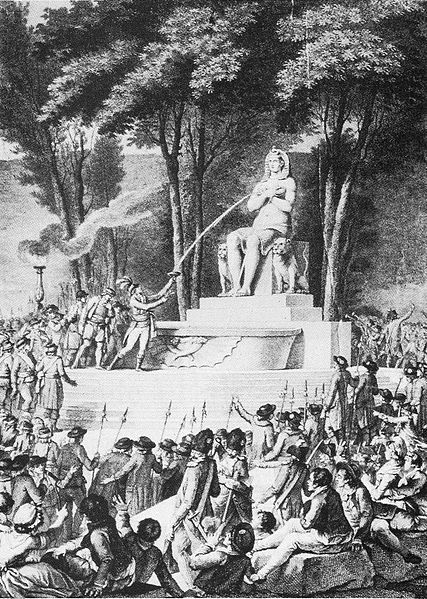 - Antoine-Éléonor-Léon Leclerc de Juigné appears weeks later, muddy and exhausted, on the Breton border. The Bishop of Nantes personally arrives shortly thereafter to ride the exhausted holy man to safety. Officials try to convince the Archbishop to rest but he refuses, demanding the right to deliver a sermon at Nantes Cathedral. There, he claims Louis Philippe is the incarnation of Satan himself and one of the Antichrists who will usher on the end of days if not stopped. Shockwaves are sent through the Catholic Church through this statement, with Rome itself rushing to find a proper response to such an allegation. - Additionally, he orders the excommunication of Louis Philippe I, General Lafayette, Jacques Herbert, François-Noël Babeuf and Louis Antoine de Saint-Just. They are refused religious ceremonies and barred from all churches. He asks the Pope to consider all actions done to support King Louis XVI and his family officially absolved of sin, even if such act would normally be considered mortal in nature. The Pope considers but explicitly states such an action would have far too many theological consequences. - The Archbishop attempts to flag a ship heading to Rome but is unable to find one. He must content himself with remaining in Brittany for the time being, urging foreign powers to intervene as opposed to actively organizing such efforts. - Berbiguier is seen publically transferring all his supplies to the University of Paris. Catalogues of demons, bottles of imps and strange smells accompany him. The University’s staff remains divided on whether they appreciate his contributions. - Trust in Robespierre among the Montagnards is beginning to fade, with many worried that he is a Girondin in disguise - or worse, a Feuillant. Many bring their concerns to Saint-Just in private, but the conversations leak and soon become the talk of the club, especially after the radical gives a widely-applauded speech before the more important Montagnards. Robespierre’s counter-claims are appreciated by the more moderate, gradualist Girondins, but Brissot himself remains icily quiet on the issue. BRETON NEWS: - Breton cries go up to the world, begging them to break the blockade. Unfortunately, neither the Austrian nor Prussian navy is capable of doing so, and the British are held back by a hesitance to commit to war. - The Bretons establish a coastguard to keep watch for de Sade and his men, but they can catch no sign of them. They do, however, see a small fleet of Ottoman merchant vessels from Egypt, who deliver grain from the Nile to the starving Bretons. British breadships soon do the same, with the French Navy allowing them to pass rather than fire on them, bringing the blockade of Breton ports to an effective end and alleviating the famine. - Recruitment efforts are undertaken in Brittany, but only a few hundred more sign on. With the French Army distracted by invading forces from the east and the National Guard still in Paris, not many feel the urgency they once did and most would prefer to remain home to till the fields. 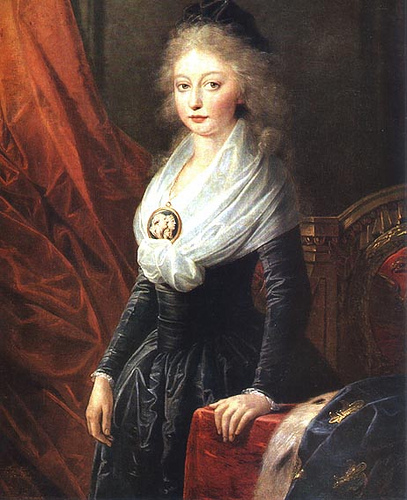 - Anna Vreizh, the Breton counter to Olympe de Gouges’ wildly successful play, begins featuring in theaters throughout Brittany, particularly in the larger cities. Written and composed by Charles Armand Tuffin, it revolves around the life of Anne of Brittany, the last sovereign duchess of the nation before its incorporation into the Kingdom of France. She is a heroine of a different sort, carefully maneuvering through the byzantine marriage contracts she was forced to undergo. Though ultimately unsuccessful in her quest, it paints her struggle for independence as a heroic one, one to be repeated by Bretons everywhere. In addition, the character of Maximilian I of Austria is portrayed in a very sympathetic light, suggesting the return of old alliances. It is performed freely for the people as part of the generosity of the government. - Many among the nobility enjoy the play, and the eyes of all Brittany turn to the young French princess in their care. She has begun taking great pains to learn the language of her hosts, and her conservative and polite demeanor wins over many peasants. - Franco, the Prussian ambassador, moves his embassy from Paris to Brittany and establishes a consulate there, granting the young nation de facto recognition. NEWS FROM SPANISH LOUISIANA: 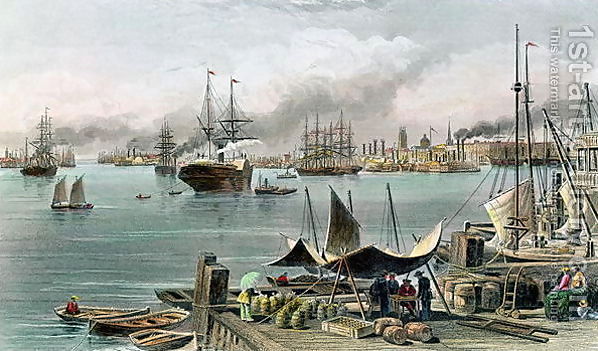 - de Sade and his men, who had been missing for months - presumed dead - suddenly sail into the harbor of Spanish New Orleans, flying the flag of the old Ancien Regime upon their masts. The people of the city flock to them - the vast majority French-speakers, some only recently expelled settlers from Acadia - eager for any news from la Patrie. Knowing little to nothing of de Sade, they find him a fairly amenable fellow. He politely asks that they take him to the nearest town square. - There, after ascending to the stage, he unfurls a long scroll with nothing written on it. He reads aloud, declaring that in his hands he holds the treaty ceding Spanish Louisiana back to France. The people scream and cheer as they tear down the flag bearing the crowns of Castile and Aragon, hoisting up the white flag of France. When the Spanish administrators arrive with a sizable garrison behind them, de Sade approaches brazenly and pats the governor on the shoulder, saying that “he can take it from here” in very rough Spanish. His soldiers suddenly leap off of their boats by the thousands, and he gestures to them with a smile. The garrison and its administrators immediately surrender their arms and ask for transport to Mexico City. COLONIAL NEWS: - Spanish aid completely dries up, though British assistance continues. Some light arms and supplies are distributed among the blacks, though the government seems low on cannons this season. - Disease takes hold in Napoleon’s troops, clustered too close together within the tight walls of St. Marc and in the blistering heat. Some four-hundred men die of the fever before the summer is out. - Small boats sail along Hispaniola's coast, landing in small villages in black-held Saint-Domingue and setting off fires that spread quickly, particularly in the more forested parts of the region. The governor of Le Cap has his hands full dealing with the crisis, and with the rest of Toussaint’s men gone south, Haitian trust in their leaders drops..  - Napoleon’s forces make their first advance across the border, capturing a large swath of territory seemingly unopposed. One dark and lonely night, the infamous Baron Samedi reappears with an undead army of hundreds, causing shock and confusion among Napoleon’s uneducated soldiers. His officer corps scream and try to maintain order, but the men are disheveled. Some turn and run even as Napoleon commands the first set of lines to be formed on either side of him, opening fire on the zombies. “Let us see if they bleed like men,” Napoleon roars. - Most of the zombies lay dead, but as the dark figure at their head raises his hands to wave what looks like a white flag, thousands upon thousands of blacks and mulattos rise behind him, descending on Napoleon’s army like a torrent. Though thousands are killed by the more disciplined and trained force, for every hundred men Napoleon kills Toussaint can muster a thousand more. As dawn breaks above them, a French victory is clearly not possible, and Napoleon orders an immediate withdrawal back behind the border, his well-trained troops managing an orderly and hasty retreat. Napoleon loses 1,380 men and Toussaint loses 3,230. - Both forces begin their race to the walls of St. Marc. The border forts are quickly abandoned as Bonaparte passes them, but the Haitians waste their time sacking and burning them to the ground. 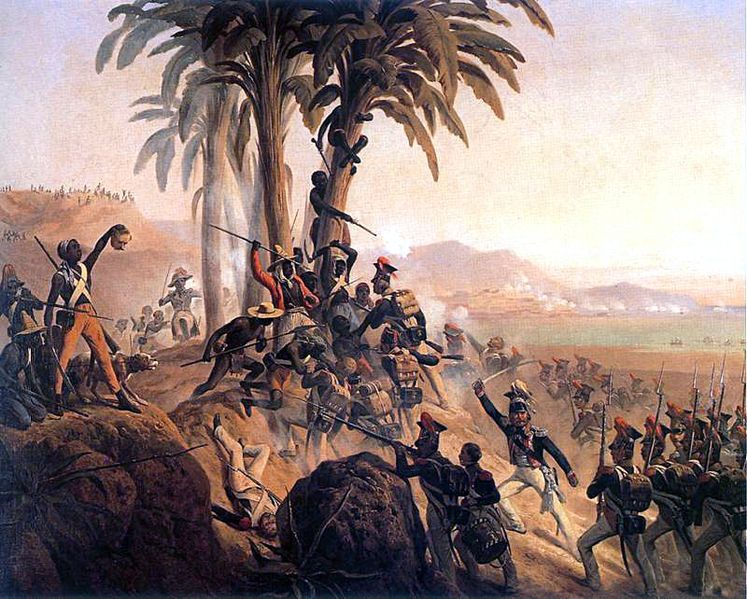 - Napoleon manages to arrive in the city first, where the fleet of the Marquis de Sade is awaiting him. His forces, having served under his command for the better part of the year, gladly follow him on board. Most of the white population does as well, and for once in his life de Sade is seen as a hero. The fleet sails north, abandoning Saint-Domingue to the black rebels and the few stubborn plantation owners who remain. Unless France sends more men, Toussaint is likely to have the whole of Saint-Domingue under his thumb by the end of the year! - Toussaint’s men arrive soon afterwards, where they set up their cannons and begin opening fire, but the smoke rising from the city comes not from his artillery but from the burning plantations all around him. The dry, husky scent of burnt sugar fills the air. - Those left behind immediately raise their flag in surrender - most of them middle-class mulattoes granted special privileges by the whites - terrified of what might happen if they refuse. Word from the colonial governor in Port-au-Prince soon reaches Louverture, who offers an immediate armistice with the blacks in exchange for help against the Spanish, who have launched an incursion into the South. - Freedom of religion is announced in Free Saint-Domingue. Most freed slaves, practitioners of a strange syncretic blend of Catholicism and African religion (“Samedism”, by scholars, “Baron’s way” in the creole) welcome the news. FOREIGN NEWS:  - An enormous force of 90,000 Russian soldiers crosses the border into the Polish-Lithuanian Commonwealth without a declaration of war, after that country dares to reform without Russia’s permission. Empress Catherine, claiming that Poland has fallen prey to the same Jacobinism on the rise in France, seeks to gain as much territory as possible from the conflict. Prussia breaks its alliance with the Commonwealth and leaves the broken nation to its fate. - Several hundred miles away, Prussia issues an official declaration of war against the Paris Commune and the Kingdom of the French. The Holy Roman Emperor follows Prussia with his own, commanding the mobilization of all German states. Troops are raised throughout the Holy Roman Empire, with several large armies gathering in Vienna, Berlin, and Brussels, but movement towards the border is minimal at best thanks to heavy pressure from the British to at least wait until next Spring. - Louis Stanislas delivers an awe-inspiring speech to L’Armée des Princes in Austrian Netherlands. The attempt is obviously to improve morale before they are mobilized to the border, but events the following day undermine his efforts.  - Panic in Vienna! After the Dauphin of France fails to appear at dinner, the servants begin to grow concerned. After gathering some courage, a maid unlocks the young prince’s quarters and searches the room. He is gone and his room in shambles. She raises the alarm. By the time the Holy Roman Emperor realizes what has happened, the Dauphin has been whisked out of Austria by the Swiss Guard, his former protectors. A massive manhunt is sent out for the child before he can be harmed. Relations between Switzerland and the Holy Roman Empire plummet. - Following the abduction, Vienna is quick to recognize Louis Stanislas Xavier as the official Regent of France. Stanislas is granted the highest honors under the Holy Roman Empire in an attempt to increase his legitimacy. After so many years outside France, however, there seems to be little domestic support for the Regent. As Austrian and Prussian armies fail to arrive on the border, Stanislas refrains as well, irritated beyond belief that his plans must be delayed for an entire year because of the meddling of some Englishman. - The Barbary pirates ramp up their attacks on Mediterranean cargo, focused particularly on the shipping lanes heading into Marseilles. They capture slaves, wealth, and merchandise that would have otherwise gone to France and return with them to their base in Tripoli. The city sees a decline in wealth. - The Sultan consents to a Franco-Ottoman trade agreement and a renewal of alliance between the two countries on one condition: French officers must be sent to Constantinople to aid him in his ambitious army reform plans. - Discussions begin between the United States of America and the Kingdom of Great Britain, with each side attempting to gain as much as possible from the diplomatic talks. The British forts on the Northwestern Territory were the most important of the issues, with disputes over the Canadian border and British impressment secondary concerns. The Short Treaty is likely to be signed by the end of the year, ironically a very long document. Support for Hamilton increases in the United States. - Arab doctors are sent to France as a gesture of goodwill by the Sultan, though the “Mohammedans” are viewed with distrust by the bulk of the population. They soon begin work as some of France’s first secular physicians. - Ads paid for by Ambassador Short appear in newspapers across the Southern United States. They implore veterans of the Revolutionary War to join the Army of the Rhine, with promises of massive fortunes. Several indebted veterans take up the offer and sail for France.  - Meanwhile, a very different movement is occurring up north. Spurred by Franco-American Clubs, the rise of feminism and the abduction of both King Louis XVI and his son, the Queen’s Association is founded in Montreal. The group holds Marie Thérèse Charlotte is the rightful heir to the French throne and that the current laws of succession in France are illegitimate. Though composed exclusively of bored, upper class intellectuals with no fighting experience whatsoever, they are extremely well-armed. The group finds other like-minded individuals in Philadelphia and London who claim they are willing to intervene at a moments notice. - The New York Stock and Exchange Board is founded, following the signing of the Buttonwood Agreement by twenty-four stock brokers. - Mount Unzen in Japan erupts. Over 14,500 people are killed in the ensuing tsunami and avalanche. The event is given little note outside of Asia.
|
| # ? Nov 20, 2012 05:21 |
|
quote:
|
| # ? Nov 20, 2012 05:21 |
|
quote:Kentoc'h mervet eget am zoatran- A
|
| # ? Nov 20, 2012 05:21 |
|
 Goodness. I apologize for the quadruple post. There was a lot of info. Turn is due tentatively at 6:00 PM on Thursday. We may reschedule because of Thanksgiving. Have fun Goodness. I apologize for the quadruple post. There was a lot of info. Turn is due tentatively at 6:00 PM on Thursday. We may reschedule because of Thanksgiving. Have fun  quote:
quote:
|
| # ? Nov 20, 2012 05:23 |
|
311x640 Koca Yusuf Pasha, Ambassador of the Ottoman Empire Frenchmen, i wish to make a plea to you. Do not let yourselves get distracted by the impudent and irrelevant Bretons to your west, focus on the Prussians and Austrians preparing for war to the east, and the internal matters that tear you apart.
|
| # ? Nov 20, 2012 06:29 |
|
 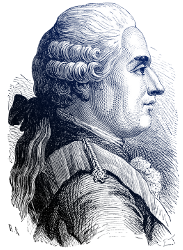  Louis Stanislas Xavier, comte de Provence, Commander of L’Armée des Princes, Regent of the Kingdom of France and Navarre, acting in lieu of His Most Christian Majesty The King, Louis XVI Gentlemen! This situation has gone far too out of hand. Everything is a mess. Now, before I continue, let me take care of something I should have done much sooner. I, as acting Regent of the Kingdom of France and Navarre, would like to officially recognize the independence of The Independent Elective Duchy of Brittany. I'm sure that the Duchy's leadership will be glad to hear this news. While the navies and armies stand between me and Brittany, I would still like to do everything I can to help the loyal Breton people! In turn, I would like to ask for Brittany's continued loyalty to the throne of France and Navarre. As long as they serve the Kingdom of France and Navarre, I pledge to do all I can to help the Duchy. With that out of the way, I must express my own dear shock and horror at the current peril that my brother and nephew face. What is going on is just about the worst possible thing that could have happened. Not only is my brother in the hands of some dirty radical republicans, but the heir is missing as well! I can only pray for their safety, and do my best to end the current chaos that engulfs my kingdom. Now, I would be helping out France a lot sooner if the Austrians and Prussians had moved to rescue the monarchy as I expected them to. The delays that the British have imposed us have certainly filled me with disappointment and frustration. I hope that the monarchies of Europe have not forgotten the constant dangers that my family faces! Finally, it has come to my attention that some Frenchmen have started to see me as a bit distant. This is an unfortunate result of the current hostilities in the kingdom which have forced me to stay here in the Netherlands. But do not despair, loyal Frenchmen! I have not forgotten about the plight of those who have not left home! While I wait for the Germans to march to war once again, I will do all I can to aid you all and protect you from the radicals and the pretenders! All those who would do you harm will have to answer to me!
|
| # ? Nov 20, 2012 06:39 |
|
Georges Cadoudal From his diary posted:...Hope means hoping when things are hopeless, or it is no virtue at all.
|
| # ? Nov 20, 2012 06:47 |
|
 King Louis Philippe I, "Le Roi Egalité" The King speaks before a large crowd gathered in front of Tuileries Palace. Copies of the speech are distributed throughout France. quote:My brothers, the last few months have seen chaos unimaginable even during the height of the Revolution! We have seen brother fight brother just outside the walls of our very city! These times, they weigh heavily upon me. They weigh heavily upon all of us.
|
| # ? Nov 20, 2012 06:54 |

























